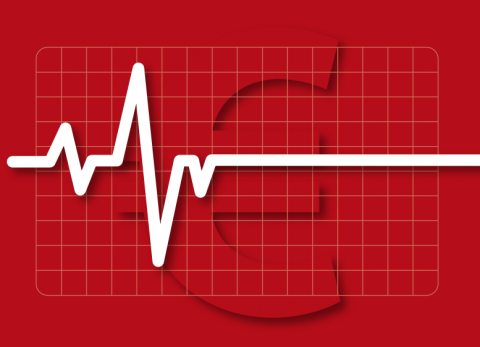Health inequalities: a matter of life and death

Think-tank TASC yesterday launched a new report on health inequalities in Ireland. Authored by Sinéad Pentony and Sara Burke, with input from the TASC Health Inequalities Advisory Group, chaired by Prof Joe Barry, ‘Eliminating Health Inequalities – A Matter of Life and Death' outlines the interrelationship between economic inequality and inequality of health outcomes.
Speaking at the launch, Prof Barry said:
This report illustrates how responses to the current economic crisis are disproportionately impacting on low-income and vulnerable groups, to the detriment of their health in both the short and the long term. The publication of this report is timely, as it coincides with the launch of the Government’s consultation on a new public health policy. The TASC report identifies a wide-ranging set of measures which, if implemented, would put public policy on the path to eliminating health inequalities. The opportunity now exists for these measures to form part of the Government’s new public health policy. These policy choices need advocates from across the spectrum of stakeholders, and they must be prioritised and resourced.
The report describes inequality as endemic in Ireland; with the income of the top tenth of the population in 2009 11 times that of the bottom tenth. The effects of this inequality are stark: men living in the poorest areas live on average 4.5 years less than men living in the most affluent areas, while the differential for women is 2.7 years; unskilled men will, on average, die six years earlier than their professional counterparts. The incidence of chronic illness is also affected by income:
The Institute of Public Health’s work on chronic diseases shows higher rates of both coronary heart disease (CHD) and diabetes in the most deprived fifth of the population compared to the rest, with rates decreasing gradually as deprivation decreases.
Those who were least deprived were also least likely to have CHD or diabetes.
Risk factors such as body mass index, cholesterol and blood pressure are also persistently higher amongst low-income social classes.
Mental health problems, too, are unequally distributed across the population, with people from higher social classes tending to experience better mental health. Levels of depression and admissions to psychiatric hospitals are more common among less affluent socio-economic groups.
Burke and Pentony say that,
The policies needed to address health inequalities are not confined to health, because the causes of health inequalities are complex and encompass lifestyle factors as well as wider determinants such as poverty, housing, education and income.
The authors cite research that shows a clear association between social spending and death rates. For each additional $100 of social spending per person, there was a 1.19 per cent drop in all-cause mortality. (Social spending is defined as unemployment payments, active labour market programmes, public pensions, spending on childcare and preschooling, family support programmes, maternity and paternity leave, health care, housing subsidies, and support for people with disabilities.)
Ireland’s relatively low level of public spending between 1995 and 2008 (as a proportion of GDP, third-lowest in the OECD for this period), may, the report suggests,
help explain poor outcomes for particular groups in Irish society – for example, those living in deprived areas; those who are socio-economically disadvantaged; and specific groups such as children and Travellers.
The report outlines a number of measures which 'need to be implemented to create the conditions for addressing health inequalities.’ These include:
- a gradual move toward Western European levels of taxation, so as to enable the provision of European standard public services;
- reform of tax expenditures/reliefs, including pension tax reliefs, legacy property-based tax reliefs and reliefs associated with private health provision;
- an increase in existing taxes;
- the introduction of new taxes: ‘an equality-proofed residential property tax [should] be introduced as part of a comprehensive tax on immovable assets’;
- a review of the Universal Social Charge as a matter of priority and adjustments made to make it more progressive;
- the publication of an Equality Statement as part of the annual budgetary process. This should ‘explain how the government is ensuring that budgetary decisions are informed by equality considerations. The Equality Statement should also cover all areas of public spending, and include the distributional impact of proposed budgetary measures (changes to spending and taxation) on all income levels and on specific demographic groups, such as women and children;
- implementation of a universal social health insurance model funded by increased employer and employee social insurance contributions combined with general taxation to provide social health insurance benefits to all Irish residents;
- evaluation of the merits of a single social health insurance fund alongside the option of competing public and private insurers in the forthcoming White Paper on Financing Universal Health Insurance.
The full report may be downloaded here.
